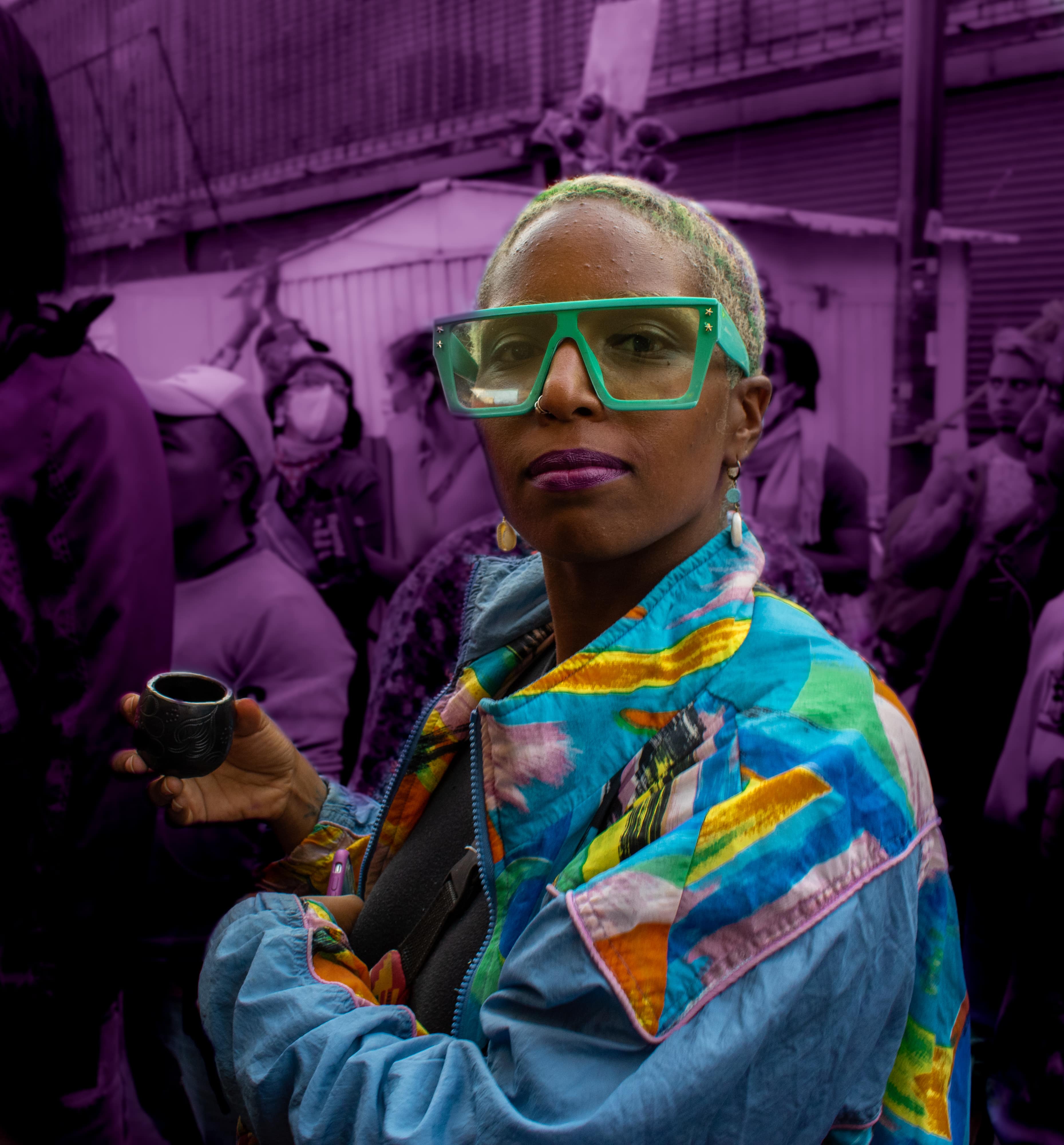My practice is an exegesis of my own identities and experiences as Dominican Sudanese-Nubian, and how dance and music and the history they embody resist hegemonies of power and memory.
A music lover from a young age, my musical knowledge is broad. I was raised on classical and continued a close relationship with it through studying violin, piano, trumpet. Choir introduced me to gospel, madrigals, and pop. My mother's limited but potent music collection and jazzercise exercise cassette tapes opened paths to reggae, funk, contemporary African bands, and dance music.
My style of DJing challenges traditional notions of what you might find under how to DJ at YouTube University. I frequently interchange musical genres and transition between drastic BPMs. To me, the CDJ is an instrument. I love its limitations, and I enjoy the limitations of composing with samples, loops, and created material, challenging the dogmas around song selection and progression.
I approach Djing as a facilitated conversation. The dance floor opens the possibility to imagine and create, the possibility of imagining something else; movement moves energy in an enclosed space and collides with others. Because my productions draw from my own life's work of survival , the center black, queer, trans, travesti, marika bodies, the space becomes a possibility where we can suspend persecution in a constant imaginative exercise that I find possible in the ephemerality of la pista.
Research informs my DJing as much as my artistic projects. My current project, Sonatas Cimarronas, began as a storytelling exercise I devised to shape my mixes and has expanded to research-led endeavors to redefine the (non) placement of black music in classical music and the written and soon to be rewritten history.
I want to go beyond the "roots of this song are African" and trace the rhythms back to the wakes left by the boats dispersing enslaved black and indigenous bodies. In Sonatas Cimarronas, the research is used to compose a Sonata following the organizational principles of classical music era, a genre that even to this day does not document the participation of non-hegemonic bodies.
